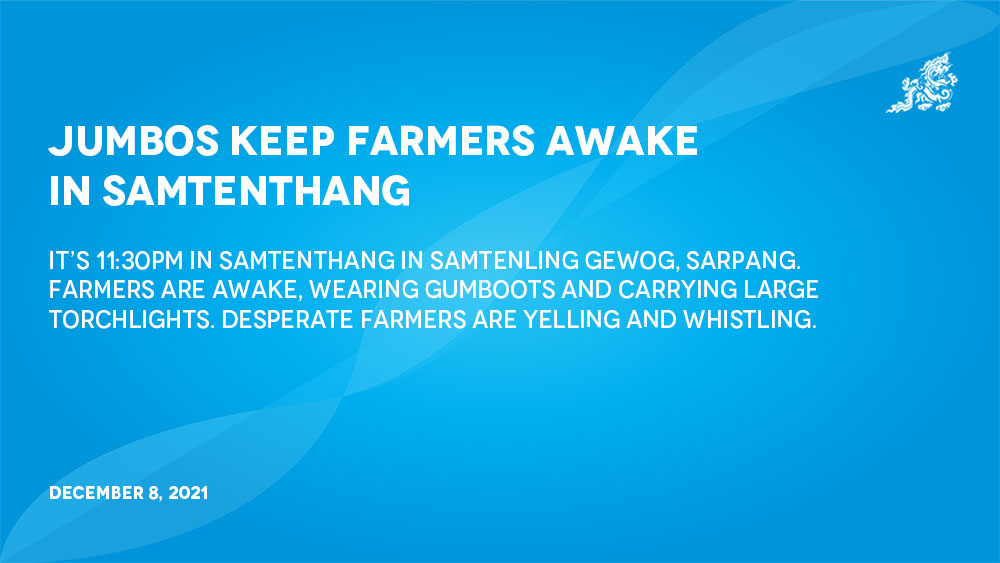Nima | Gelephu
It’s 11:30pm in Samtenthang in Samtenling gewog, Sarpang. Farmers are awake, wearing gumboots and carrying large torchlights.
Desperate farmers are yelling and whistling.
About a few metres away from Gelephu-Sarpang highway, Sonam and four friends started a fire; big enough to keep them warm from the winter cold and scare the jumbos.
Farmers from Samtenthang said there are more than 40 elephants raiding crops and destroying water supply lines every night.
Villagers did not finish harvesting their paddy. Many farmers are also growing vegetables on a commercial scale.
“The grass planted for elephants near our farm is exhausted now. The herd is divided into groups. It’s becoming riskier. Elephants are near the road commonly used by the people from Juprey,” Sonam said.
Sonam said a young couple with an infant ran towards his farm, asking help to reach home safely last week. “We waited for hours. But, they returned to Gelephu to their relatives at 1am. These are problems we face every night,” said the young farmer.
Repairing pipelines during the day has also become risky.
Villagers travel in groups to maintain the water source because the elephants are found close to the water source at the top of Samtenthang.
Samtenthang’s plumber, Rup Narayan, said elephant raids increased over the last one month. “We couldn’t go for water source maintenance. Farmers are losing paddy to the elephants,” he said.
The animal detection device that was supposed to alert farmers when elephants enter the farms was not so effective. Farmers said elephants have learned to enter from the areas that were not covered by the device.
The sound and light alert system detects wildlife movements within 30 metres.
Ram Chandra from Samtenthang said the situation has become worse. “The herd roams near the road we use always. It comes close to our homes. It’s worrying now. We have to start a fire and stay awake the whole night.”
The chief forestry officer of the divisional forest office in Sarpang, Phub Dhendup said that no major damages were reported so far.
“We chased them with the help of community but some returned. It’s not time for elephants to migrate. They will migrate after the harvest time is over and when food becomes limited,” he said.
He added that it was an annual trend and there could be minor damage to crops and fruits. “There was no human casualty like in the past.”
Phub Dhendup said there was no intrusion from the area where intrusion detection devices were installed. “The intrusion was from a grey area where alarms were not installed.”
A farmer from Samtenling said guarding crops the whole night after working the whole day was tiring. “It’s risky for the commuters to travel after 5:30pm now.”


